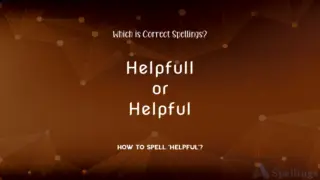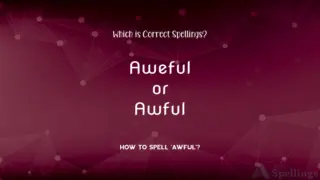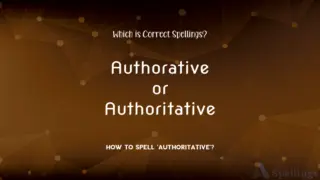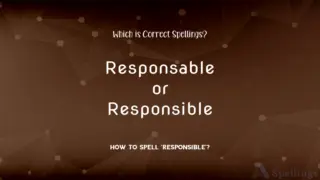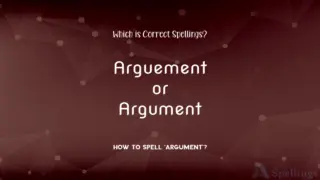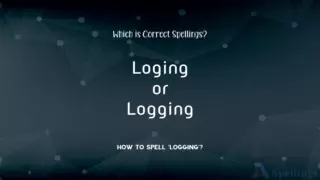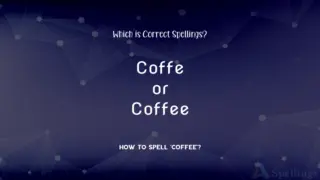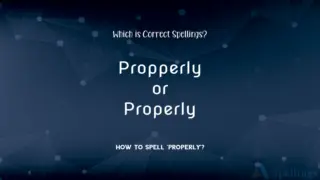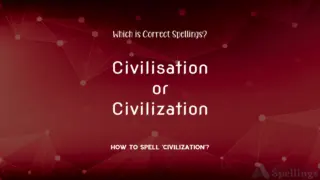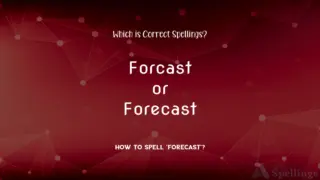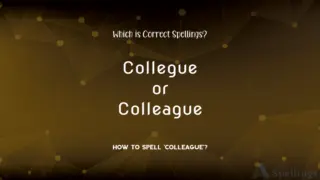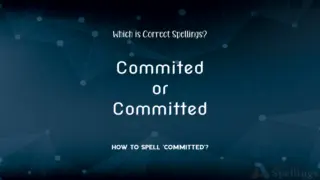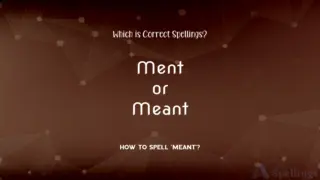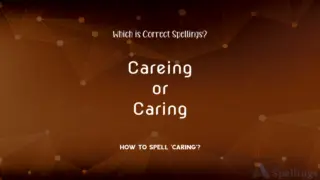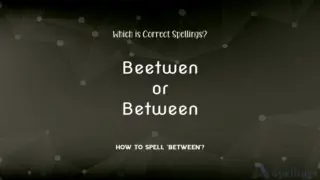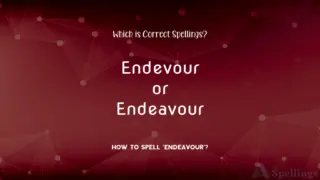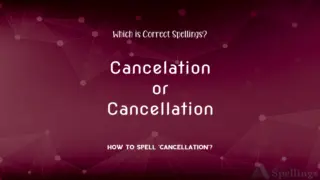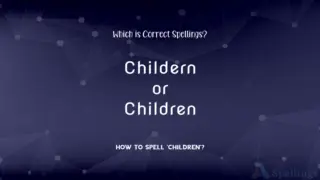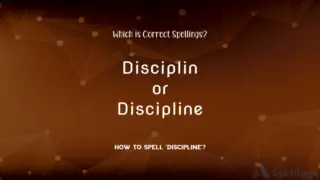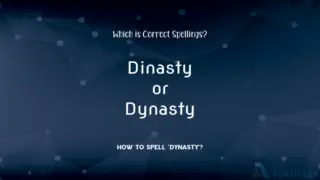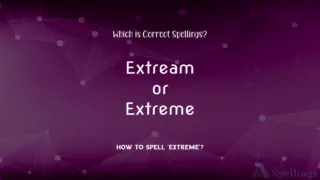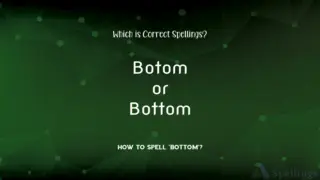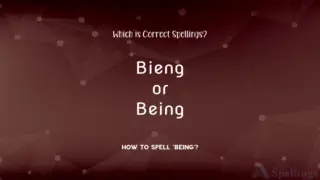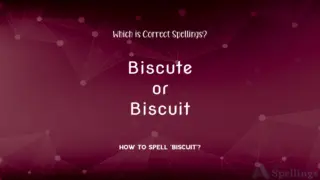Ellicit or Elicit: Which is Correct Spellings?
Ellicit is incorrect, while Elicit is the correct spelling. Elicit means to draw out a response or reaction.
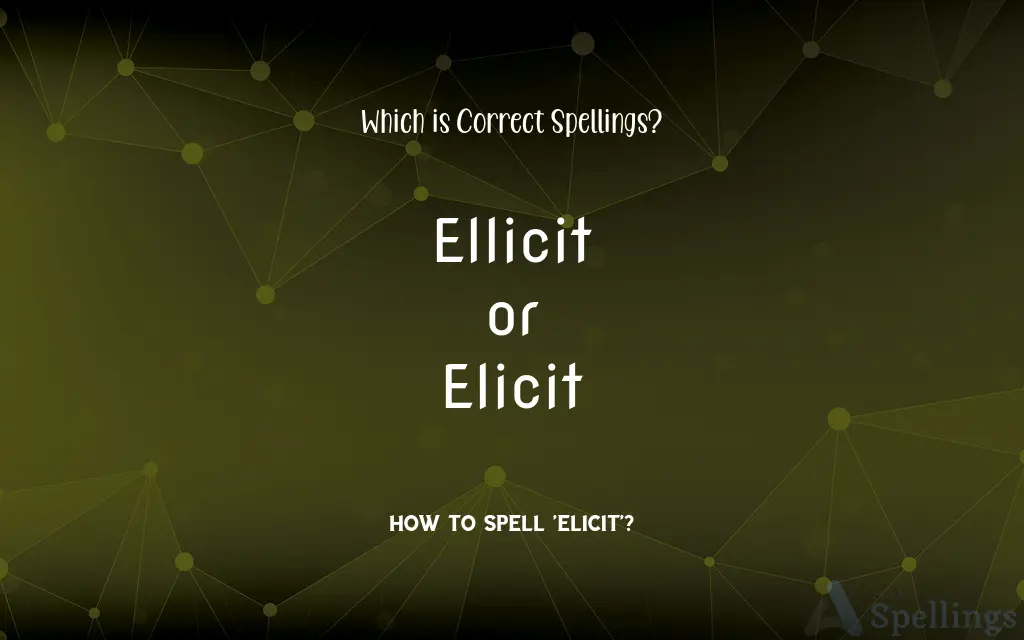
Which is correct: Ellicit or Elicit
How to spell Elicit?

Ellicit
Ellicit Spelling

Elicit
Elicit Spelling
Table of Contents
Is it Ellicit or Elicit
"Ellicit" has too many letters to simply draw out.
"Elicit" sounds like "exit" – both are about drawing something out.
Remember "Elicit" has just one "l" like "response."
Picture the "E" in "Elicit" extracting a single "l" from a word.
Think: one "l" to "Lure" out a reaction.
How Do You Spell Elicit Correctly?
Incorrect: She managed to ellicit the information with clever questioning.
Correct: She managed to elicit the information with clever questioning.
Incorrect: His comment was sure to ellicit laughter.
Correct: His comment was sure to elicit laughter.
Incorrect: The teacher tried to ellicit answers through open-ended questions.
Correct: The teacher tried to elicit answers through open-ended questions.
Incorrect: Bright colors often ellicit feelings of happiness.
Correct: Bright colors often elicit feelings of happiness.
Incorrect: The music was intended to ellicit emotions from its listeners.
Correct: The music was intended to elicit emotions from its listeners.
Elicit Definitions
Elicit refers to inducing a particular outcome.
The advertisement sought to elicit immediate purchases.
Elicit can mean to evoke or extract.
The interview aimed to elicit personal stories.
Elicit can mean to bring to light information.
The detective hoped to elicit the truth during the interrogation.
Elicit means to draw out a response or answer.
The teacher's question aimed to elicit thoughtful answers from students.
Elicit refers to provoking a reaction or emotion.
His speech was designed to elicit applause.
Elicit Meaning in a Sentence
The magician's tricks elicit gasps of amazement.
The startling news is expected to elicit various reactions.
Her performance was meant to elicit praise.
The goal of the survey was to elicit feedback.
The announcement was designed to elicit public interest.
The book's ending is sure to elicit tears.
The advertisement's goal was to elicit sales.
The comedian's jokes elicit roaring laughter.
New policies often elicit strong opinions.
He could always elicit a smile from her.
New teaching methods elicit more participation from students.
The puzzle's complexity will elicit problem-solving skills.
The scenery was beautiful enough to elicit awe.
The music's rhythm was sure to elicit dance.
The loud noise was bound to elicit complaints.
Her painting was meant to elicit thoughts about nature.
The therapy session helped elicit suppressed memories.
That question is likely to elicit various answers.
His speech was crafted to elicit support.
The new rule might elicit opposition.
The film's intent was to elicit empathy.
That statement is bound to elicit controversy.
The play aimed to elicit deep thought.
The team's win was expected to elicit celebrations.
The announcement is likely to elicit a lot of questions.
The workshop will elicit creativity among attendees.
The coach's tactics elicit the best from the players.
A magician's surprise ending will always elicit wonder.
The poem was written to elicit reflection on life.
The delicious aroma is sure to elicit hunger.
Elicit Idioms & Phrases
Elicit a promise
Make someone give an assurance.
She managed to elicit a promise from him before leaving.
Elicit support
Gain backing or help from someone.
The campaign was designed to elicit support from the community.
Elicit admiration
Cause others to look up to or respect.
His dedication did elicit admiration from his colleagues.
Elicit a response
Make someone reply or react.
The provocative article did elicit a response from many readers.
Elicit attention
Make oneself noticeable or memorable.
His flamboyant attire was meant to elicit attention.
Elicit a commitment
Secure someone's dedication or promise.
The manager wanted to elicit a commitment from his team.
Elicit the truth
Draw out facts or details.
The interviewer was trying to elicit the truth from the celebrity.
Elicit a memory
Cause someone to recall a past event.
The song managed to elicit a memory from her childhood.
Elicit concern
Cause worry or anxiety.
The sudden drop in sales did elicit concern.
Elicit a reaction
Draw a noticeable response from someone.
The surprising news did elicit a reaction from the audience.
Elicit a confession
Make someone admit a wrongdoing.
The detective hoped to elicit a confession from the suspect.
Elicit an explanation
Make someone clarify or expound.
She tried to elicit an explanation for his sudden behavior change.
Elicit surprise
Cause astonishment or wonder.
The unexpected twist in the story did elicit surprise.
Elicit feedback
Ask for reactions or comments.
The company sent out a survey to elicit feedback from customers.
Elicit a debate
Provoke discussion or argument.
The controversial topic was sure to elicit a debate.
Elicit participation
Encourage involvement or engagement.
The workshop's interactive design was meant to elicit participation.
Elicit praise
Make others give compliments or accolades.
Her excellent performance elicits praise from everyone.
Elicit agreement
Make others concur or give consent.
He presented his points in a way to elicit agreement.
Elicit a smile
Make someone grin or look pleased.
The comedian's joke did elicit a smile even from the grumpiest person.
Common Curiosities
How many syllables are in Elicit?
Elicit has three syllables.
What is the verb form of Elicit?
Elicit is already in its verb form.
Is Elicit an adverb?
No, Elicit is not an adverb.
Is Elicit a noun or adjective?
Elicit is a verb.
Is Elicit a negative or positive word?
Elicit is neutral; its connotation depends on context.
How do we divide Elicit into syllables?
Elicit is divided as e-lic-it.
Which vowel is used before Elicit?
Typically, "an" can be used before Elicit.
Is Elicit a collective noun?
No, Elicit is a verb.
What is the root word of Elicit?
The root word is "licit", meaning lawful or allowed.
What is a stressed syllable in Elicit?
The second syllable, "lic", is stressed in Elicit.
What is the pronunciation of Elicit?
Elicit is pronounced as ih-LIS-it.
Is Elicit an abstract noun?
No, Elicit is a verb.
What is the opposite of Elicit?
The opposite might be "suppress" or "conceal."
What is the third form of Elicit?
The third form is "elicited."
How is Elicit used in a sentence?
Elicit is used as a verb, e.g., "The question aimed to elicit a truthful response."
Is Elicit a vowel or consonant?
Elicit is a word, but it starts with a vowel.
Is the word Elicit a gerund?
No, but its gerund form is "eliciting."
What part of speech is Elicit?
Elicit is a verb.
Which determiner is used with Elicit?
Determiners aren't typically used directly before verbs like Elicit.
What is the first form of Elicit?
The first form is "elicit."
What is the second form of Elicit?
The second form is "elicited."
Is Elicit a countable noun?
No, Elicit is a verb.
Is the word Elicit imperative?
Elicit can be used in the imperative mood, as in "Elicit a response."
What is another term for Elicit?
Another term for Elicit is "draw out."
What is the singular form of Elicit?
Elicit is a verb and does not have a singular or plural form like nouns do.
What is the plural form of Elicit?
Verbs don't have plural forms in the same way nouns do.
Which conjunction is used with Elicit?
Any conjunction (and, but, or, etc.) can be used with Elicit, depending on the sentence.
Which article is used with Elicit?
Articles aren't typically used directly before verbs like Elicit.
Is the Elicit term a metaphor?
No, but it can be used in metaphoric expressions.
Is the word “Elicit” a direct object or an indirect object?
Elicit is a verb, so it doesn't function as an object. However, it can have a direct object.
Why is it called Elicit?
It is derived from Latin "elicere" meaning "draw forth."
Which preposition is used with Elicit?
"From" is commonly used with Elicit, as in "elicit a response from."
Share Your Discovery
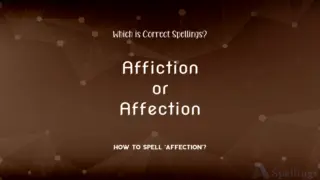
Previous Spelling
Affiction or Affection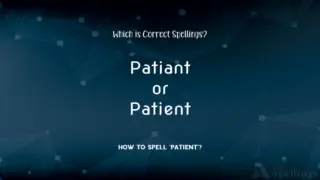
Next Spelling
Patiant or Patient
